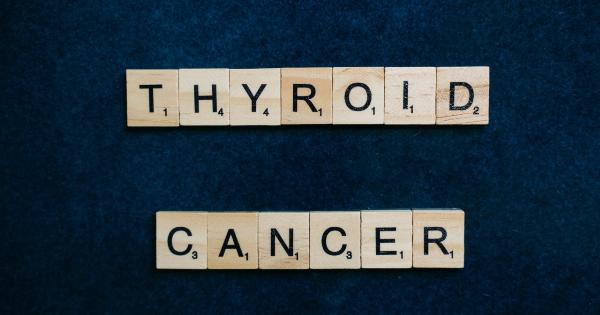Hypothyroidism is a medical condition in which the thyroid gland does not produce enough hormones to keep the body functioning properly. This condition affects millions of people worldwide, yet it often goes undiagnosed and untreated.
In this article, we will explore the prevalence of hypothyroidism, its symptoms, and the various treatment options available.
What is Hypothyroidism?
The thyroid gland is a butterfly-shaped gland located at the base of the neck. Its primary function is to release hormones that regulate the body’s metabolism.
These hormones play a crucial role in maintaining body temperature, heart rate, and energy levels. When the thyroid gland does not produce enough hormones, the body’s functions slow down, resulting in hypothyroidism.
Hypothyroidism can be caused by a range of factors, including autoimmune disease, medication side effects, radiation therapy, and certain infections. Women are more likely to develop hypothyroidism than men, and the risk increases with age.
The Prevalence of Hypothyroidism
According to the American Thyroid Association, an estimated 20 million American adults have some form of thyroid disease, and up to 60 percent of those with thyroid disease are unaware of their condition.
Hypothyroidism is the most common type of thyroid disease and affects approximately 1 in 1,000 men and 1 in 70 women.
Hypothyroidism is more prevalent in areas where iodine is deficient, such as sub-Saharan Africa and Southeast Asia.
In the United States, iodine deficiency is rare, but certain regions, such as the Great Lakes and Appalachian regions, have a higher incidence of hypothyroidism.
Symptoms of Hypothyroidism
The symptoms of hypothyroidism can be subtle and may take years to develop. Some of the most common symptoms include:.
- Fatigue
- Weight gain
- Dry skin and hair
- Joint pain and stiffness
- Depression
- Constipation
- Memory problems
- Cold intolerance
- High cholesterol levels
- Heavy or irregular periods
Many of these symptoms are also associated with other medical conditions, which can make it difficult to diagnose hypothyroidism. It is important to seek medical attention if you are experiencing any of these symptoms.
Diagnosing Hypothyroidism
To diagnose hypothyroidism, your doctor will perform a physical exam and review your medical history. They may also order blood tests to measure your thyroid-stimulating hormone (TSH) and thyroid hormone levels.
If your TSH levels are high and your thyroid hormone levels are low, you may have hypothyroidism. Additional tests, such as a thyroid ultrasound or biopsy, may be ordered to determine the underlying cause of your condition.
Treating Hypothyroidism
The treatment for hypothyroidism depends on the underlying cause of the condition. In most cases, hypothyroidism is treated with synthetic thyroid hormone replacement therapy.
This involves taking a daily pill that contains a synthetic version of the thyroid hormone thyroxine (T4).
Your doctor will monitor your TSH levels to determine the correct dosage of medication. It may take several weeks or months to achieve the correct dosage, and regular blood tests will be required to ensure the medication is working properly.
Alternative Treatment Options
In addition to traditional medication-based treatment, there are alternative treatment options available for hypothyroidism. These options include:.
- Dietary changes: Some research suggests that a diet rich in whole foods, lean proteins, and healthy fats can improve thyroid function.
- Supplements: Supplements such as selenium, zinc, and iodine have been shown to improve thyroid function in some individuals. However, it is important to speak with your doctor before taking any supplements, as they can interact with medication and other conditions.
- Acupuncture: Some individuals have reported symptom relief from acupuncture treatments.
- Stress management: Stress can have a negative impact on thyroid function. Practicing stress-management techniques such as yoga, meditation, and deep breathing exercises can improve overall health and wellness.
Conclusion
Hypothyroidism is a common medical condition that affects millions of people worldwide. Despite its prevalence, it often goes undiagnosed and untreated due to its subtle symptoms.
If you are experiencing symptoms of hypothyroidism, it is important to seek medical attention to determine the underlying cause of your condition and receive appropriate treatment.






























